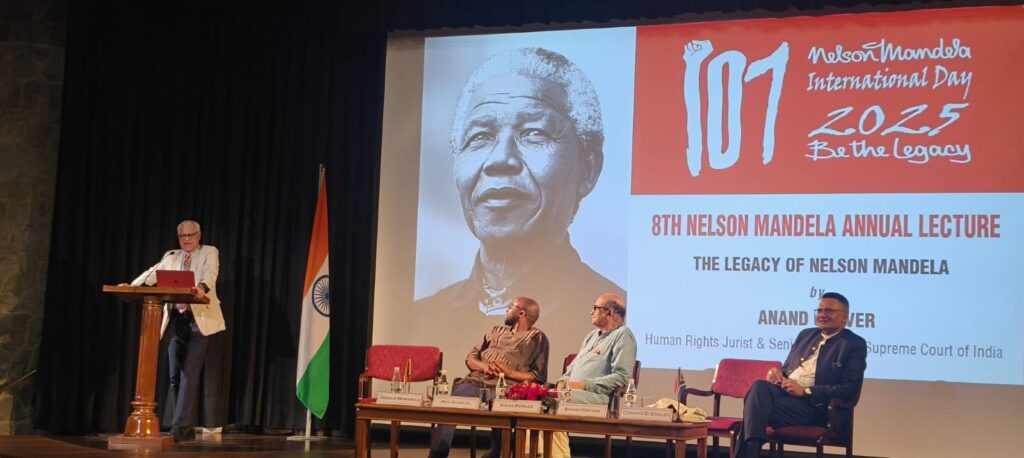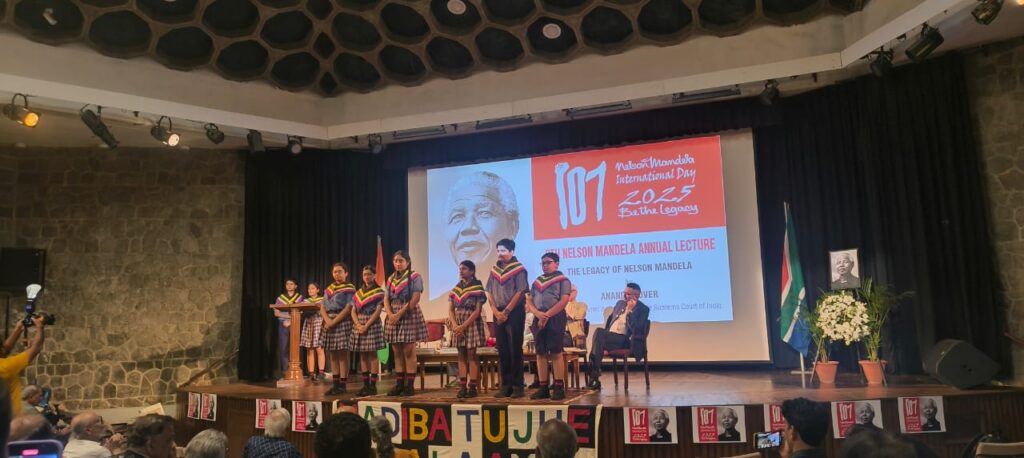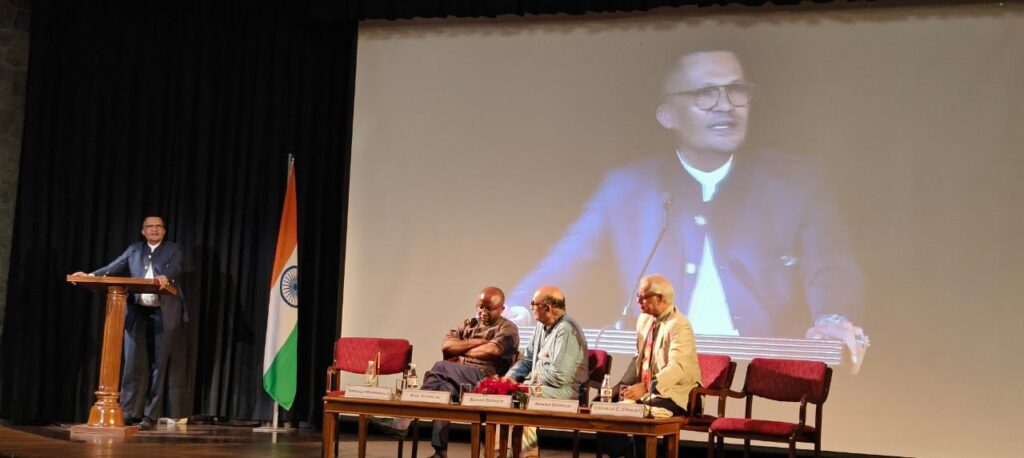At a time when it feels easier to choose vengeance over reconciliation, and division over dialogue, Mandela’s life reminds us that peace is not passive, and justice is not optional
RAO NARENDER YADAV

In a world teetering on the edge— where violence scorches Gaza, war grinds on in Ukraine, and there is a rising tide of authoritarianism and division—it is easy to feel overwhelmed. At a time, when the global order feels increasingly fragile, justice selective, and peace elusive, the idea of nonviolence, dialogue, and reconciliation can seem naïve—almost out of place. And yet, it is precisely in this landscape of despair that the legacy of Nelson Mandela becomes not only relevant but urgently necessary.
It was against this unsettling global backdrop that I walked into the India International Centre (IIC) for the 8th Nelson Mandela Annual Lecture to be delivered by Anand Grover, senior Advocate, Supreme Court of India. I expected a ceremony wrapped in reverence—a few warm tributes, familiar phrases about peace and resilience, a soft echo of “be the change.” Something ceremonial. Predictable. Comforting. I wasn’t prepared for what followed.
What unfolded was not a celebration of a ‘saint’, but a confrontation with a ‘man’—complex, courageous, and inconvenient. The programme began with the reciting of National Anthem of both the countries by the students of Blue Bells International school, followed by opening remarks by Sedula Mamabolo of the South African High Commission and then by Suhas Borker.

But it was Anand Grover who shook the room, and something deep within me. There was no theatricality in his voice, no ornamentation in his words – just a piercing honesty. He didn’t offer us the polished Mandela carved in history books or quoted in political speeches. He brought forward the flesh-and-blood figure—the man who made difficult choices, to ensure others could live with dignity.
He reminded us that Mandela didn’t hold on to nonviolence as an ideal; he wielded it with clear-eyed strategy and a lot of pragmatism. It was a conscious, courageous restraint—a refusal to let rage write the future of his people. That kind of restraint, Grover hinted, demands a discipline of soul that most of us can barely imagine.
Under the weight of those words, something stirred. The air grew heavier. The legacy of Nelson Mandela wasn’t being polished for admiration—it was being handed back to us, like a torch, or maybe like a burden we had failed to carry.
Interspersed with anecdotes from Mandela’s life, he shared how Mandela always believed in the enduring power of humanity in the face of inhumanity, even when he was treated in the most gruesome manner in the prison. And then came the question, dropped like a stone in a still pond: “Can any Indian politician today, of any party – do what Mandela did in prison? Clean toilets? Carry another prisoner’s bucket?” It wasn’t a provocation. It was a quiet, searing challenge – meant not to accuse, but to expose. The room went still. The kind of stillness where you can feel everyone blinking a little slower, looking down or away. Because we all knew the answer. We didn’t need it spoken aloud. In that moment, Mandela was no longer a distant icon on a pedestal. He was a mirror—reflecting back to us everything we are not yet willing to become. It hurt. Because it was meant to.
Cedric Crowley, Deputy High Commissioner, South African High Commission, further touched our hearts deeply. “Mandela,” he said quietly, “would have been deeply disappointed in us.” He spoke of broken promises, forgotten pledges. Of how the world, instead of lifting people out of poverty, is preparing for war. It was a sentence that hung in the air like smoke.

While concluding his talk, Crowley spoke of a student who had asked him, “How do we make more Mandelas?” He paused—long enough for the question to settle inside each of us. “There’s no framework,” he finally said. “Mandela was too layered, too complex. But if there’s one truth—it’s that he loved deeply.” Somehow, that answered everything. And yet, not nearly enough.
I walked out into the evening, changed. Not inspired in the simple, uplifted way. But moved, unsettled, even a little ashamed. This hadn’t been a tribute; it had been a reckoning. A reminder that it’s easy to honour giants from afar, much harder to walk even a step in their shoes.